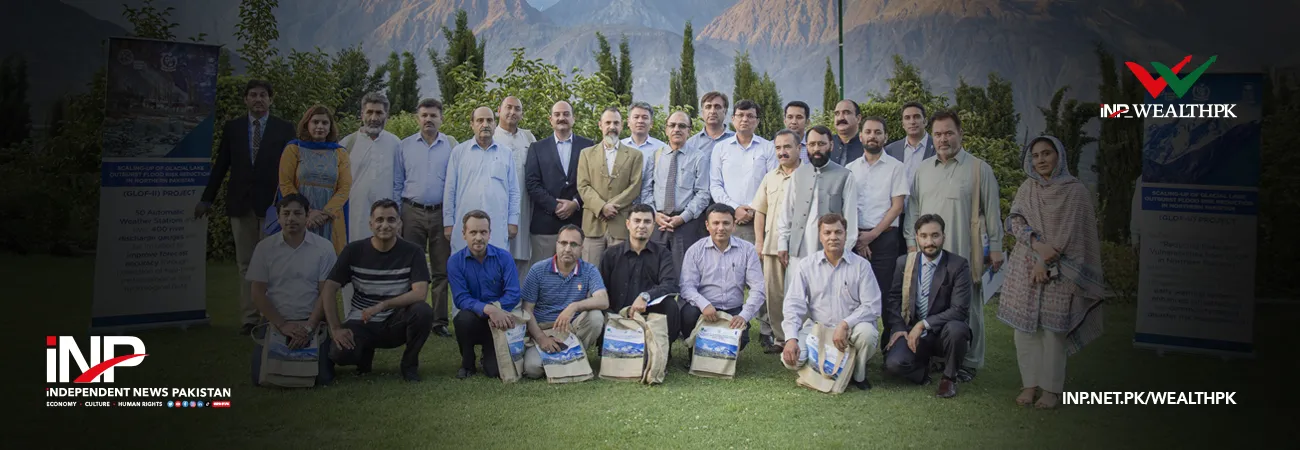INP-WealthPk
Shams ul Nisa
The UNDP-funded GLOF-II project in Gilgit-Baltistan is guiding the communities in mitigating the future flood havoc and ensuring easy and safe availability of water for both drinking and agriculture, an official from the UNDP told WealthPK. The northern areas of Pakistan are most vulnerable to natural disasters, particularly glacial lake outburst floods (GLOF). “The UNDP has a long history of work in various regions of Pakistan concerning human development, climate change resilience and Sustainable Development Goals (SDGs) in collaboration with government ministries,” he said. The primary focus of GLOF-II is to amplify the resilience of vulnerable people to the impact of climate change. Under the project, weather stations have been built to monitor climate change.
GLOF-II works in 24 valleys of Gilgit-Baltistan and Khyber Pakhtunkhwa. According to the UNDP GLOF-II report, upon completion of the project by 2024, 240 irrigation channels, 250 small-scale structures, 700-hectare area slope stabilization structures (plantation and bio-engineering), and 24 community-based disaster risk management centers would be established in the region besides formation of hazard watch group, and introduction of mock drills and trainings. "The construction of irrigation channels will help local farmers enhance their produce. As a result, food security issues in the region would be resolved," he added.
"The project has generated job opportunities and increased demand for inputs for infrastructure development, resulting in socio-economic development of the region. With the help of the Planning and Development Department, Gilgit-Baltistan Disaster Management Authority, water management and forest department, about 65-85% of the project has been completed," said the UNDP official. As per a UN report, provision of clean water is one of the foremost goals of SDGs and MDGs. The aftermath of recent floods is still there with more than 10 million people lacking access to clean drinking water.
“In order to ensure water availability for the community, water channels have been built across the region and plantation in different areas is also being carried out with the help of forest ministry,” the official added. Considering the current climate change, Pakistan is most likely to face foods and shortage of water. The displaced population from the highly vulnerable areas to safe places needs more attention. Immediate action is required to ensure safety and provision of clean water and food to the people rather than exposing them to the impact of climate change.
Credit: INP-WealthPk




